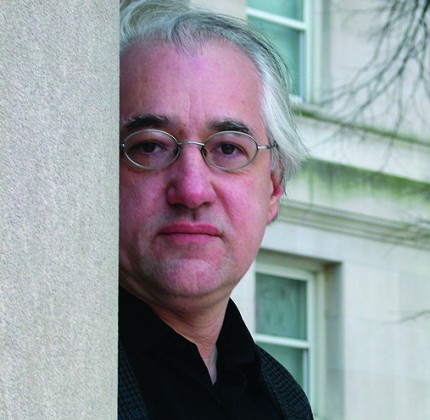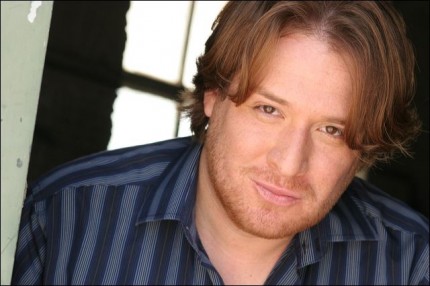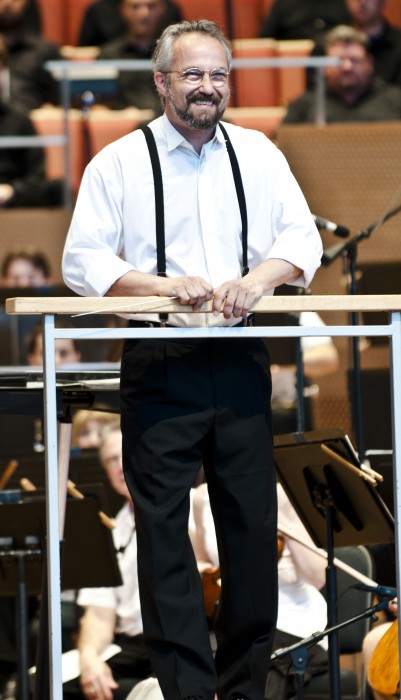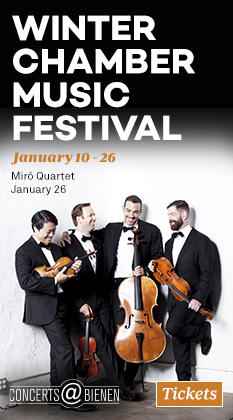Currier choral premiere delivers a haunting, compelling vision at Grant Park Music Festival

Neither raging tempest nor godless heat prevents the show from going on at the Grant Park Music Festival. Friday’s 103 temperature descended to a comparatively balmy 99 degrees by concert time at the Pritzker Pavilion.
Still, the oppressive weather kept the usual large crowds away, which was a shame since the program offered a significant world premiere with Sebastian Currier’s Sleepers and Dreamers, commissioned for this 50th anniversary season of the Grant Park Chorus. (Saturday’s repeat should come with more bearable temperatures and will hopefully draw the audience this successful premiere deserves.)
This summer’s other festival commission, Michael Gandolfi’s Only Converge: An Exaltation of Place, which was unveiled last month, tried too hard to create a civic paean to Chicago. Currier goes in a completely different direction, ignoring the city and the occasion of the commission (to his credit) and instead creating a strange and compelling nocturnal landscape for chorus and orchestra centered on dreams.
Sleepers and Dreamers is cast in two sections, played without pause. The first (“Sleepers”) looks at sleep from an objective, at times clinical perspective, with an evocative text by poet Sarah Manguso that examines its physiological effects. The second part (“Dreamers”) sets brief, blankly literal descriptions of seven people’s dreams, from humorous to melancholy and disturbing.
Currier’s 22-minute work begins with an eerie wordless choral vocalise against mysterious swells and ebbs in the orchestra. The tempo accelerates and the volume increases as the chorus sings of sleep’s effects on the body. The surging orchestral textures grow more uninhibited, dynamic and angular, building to a powerful rhythmic choral fugue on the words, “the sleepers,” before the tempos slows and the music quietens, returning to the mysterious shimmering of the opening section.
The second part follows without pause, and here Currier’s resourceful writing for chorus and orchestra is strikingly reflective of the floating, unsettling qualities associated with dreams, a piano and vibraphone effectively added to the scoring. The undulating textures of the second dream (“I am swimming”) are particularly suggestive, the soprano voices building to a bracing climax with Ligeti-like clusters.
Some of the word painting is more literal. A dream about being on a railroad track is painted with staccato rhythms as the locomotive approaches. In another, about “having an ecstasy,” the choral textures soar higher until the mounting sexual ardor abruptly veers off into existential angst. The penultimate stanza—the dreamer sees a lifeless, decomposed body that he gradually realizes is himself—is painted in somber dark lines, with long, overlapping choral phrases that rises to a cinematic tutti like the soundtrack to an unnerving science fiction film. Currier’s work closes in a shimmering of electronic chimes and bells that slowly fades away to silence.
Sleepers and Dreamers is a haunting and atmospheric work, scored with great skill and imagination for orchestra and chorus and resoundingly successful in conjuring the disturbing as well as absurd elements of dreams. Especially effective are the restless crystalline orchestral textures and the bridging choral passages between the dreams with melismatic vocal writing that evokes that strange, elliptical state between consciousness and dreaming.
Under Kalmar’s direction, the Grant Park forces provided an outstanding debut, refined and transparent in mysterious moments and unleashing full-throttle power at climaxes. The chorus’s words could have been clearer at times and Kalmar’s excitable direction occasionally allowed the orchestra to overpower the singers, but this was a notable bow for a work that deserves to enter the regular chorus-and-orchestra repertory.
The first half of Friday’s program was on an equally high and accomplished level.
It’s not hard to understand why Ralph Vaughan Williams’ Five Mystical Songs is so rarely performed these days. The English composer’s settings of five George Herbert poems is imbued with an ardent Anglican fervor that can be somewhat inscrutable to modern audiences (and presenters). And few singers will elect to perform a set of songs in which the final setting is for chorus sans soloist.
That said, the Five Mystical Songs are among Vaughan Williams’ finest works, strikingly beautiful at times and with graceful and fluently adroit settings of the metaphysical priest-poet’s stanzas. Kudos to the festival for presenting this lovely, neglected music.

Levi Hernandez proved the perfect advocate for this music. The Texas-born baritone, a Lyric Opera Ryan Center alumnus, brought a rich, resonant voice and clear diction to these settings, singing with a natural unforced style and ease of production that made the finest possible case for this music. This is a singer we need to hear more often in Chicago.
Christopher Bell’s Grant Park Chorus also delivered stellar artistry, singing with great delicacy and delivering robust vocalism to the big moments with the exultant final setting of Herbert’s Antiphon having majestic impact under Kalmar’s vital direction.
The concert led off with Richard Strauss’s Death and Transfiguration, an artful bit of programming with its parallel resonance to the Currier work. It’s a testament to the professionalism and close partnership of Kalmar and the Grant Park musicians that they managed to deliver such a gripping, well played account of this demanding score, which would have been an achievement in an indoor venue, never mind under Friday’s brutal conditions.
This was a complete and vividly idiomatic performance, from the dying protagonist’s faltering heartbeat through the high spirited remembrance of youthful revels and romance to the moment of death and ascending transfiguration theme. Kalmar drew terrific playing by the orchestra in all departments, particularly the gleaming strings with superb violin solos by concertmaster Jeremy Black.
Note: Brahms’ Tragic Overture was dropped from Friday’s program and the intermission lengthened to a half-hour in accordance with musicians union mandates on evenings of extreme heat. The Brahms will be performed at Saturday’s concert, weather permitting.
The program will be repeated 7:30 p.m. Saturday. grantparkmusicfestival.com

Posted in Performances
